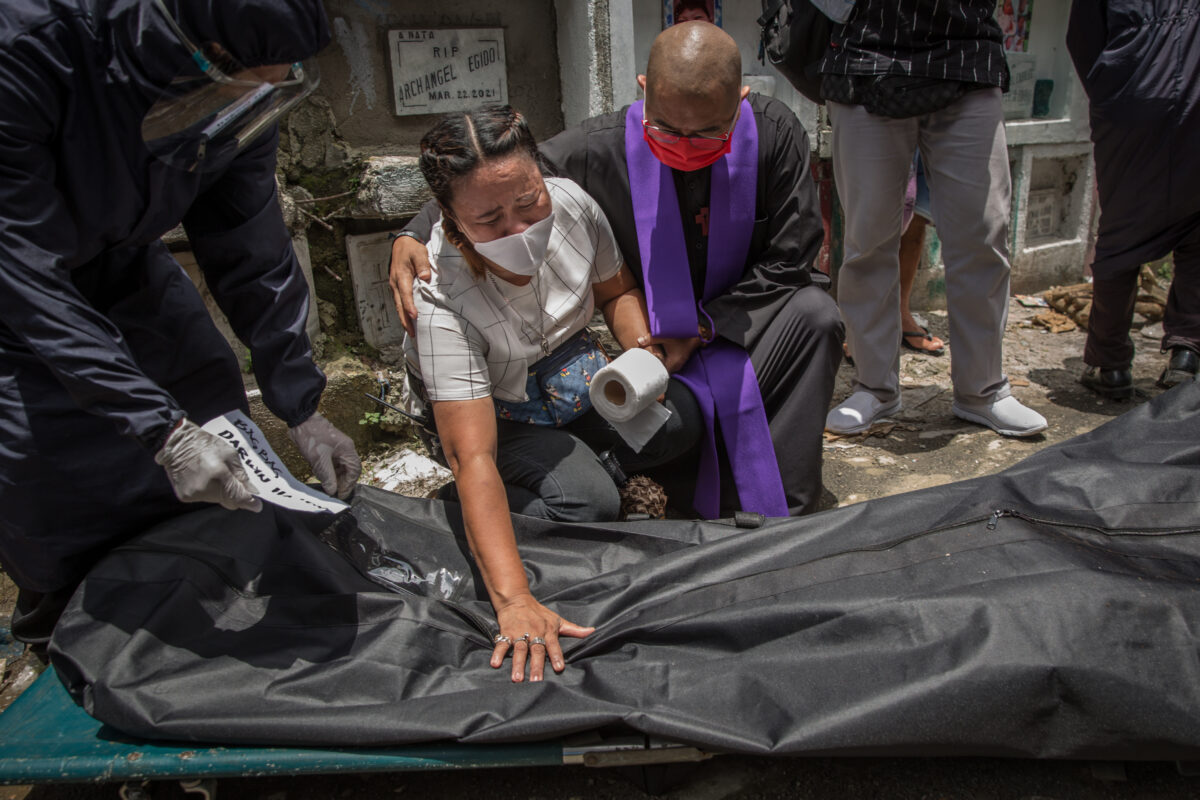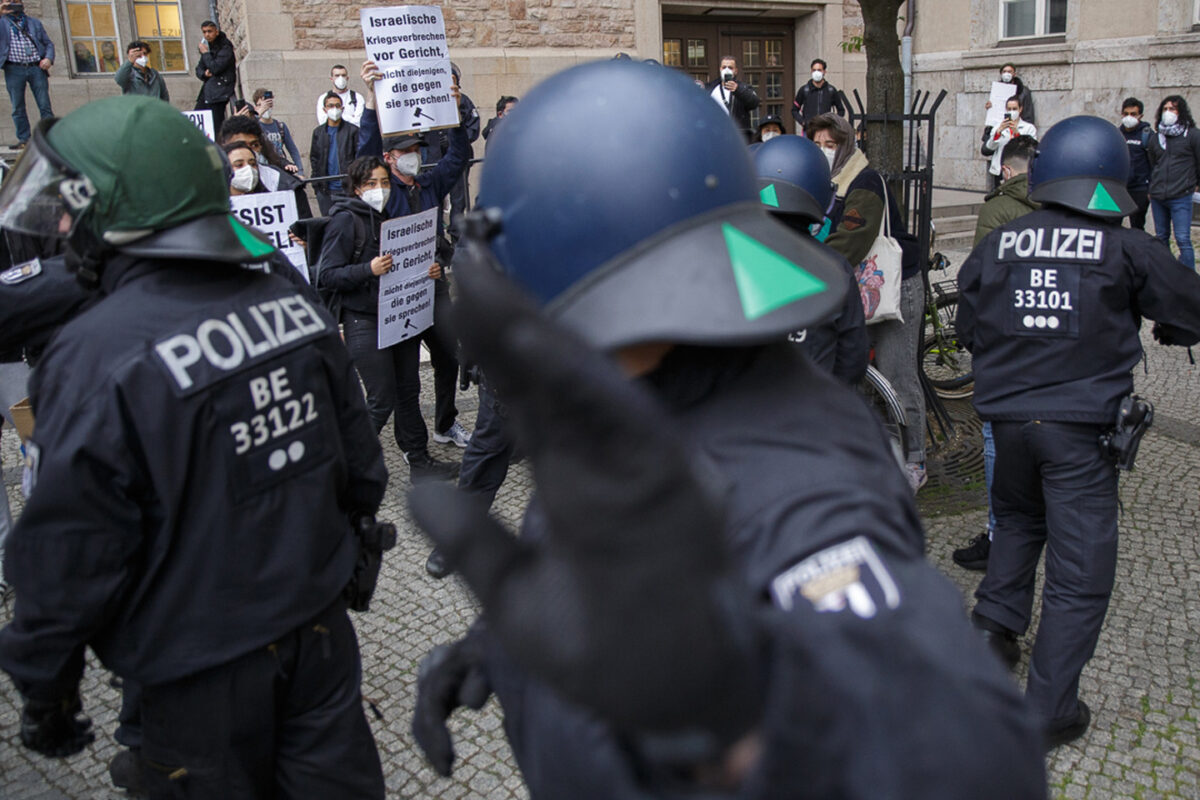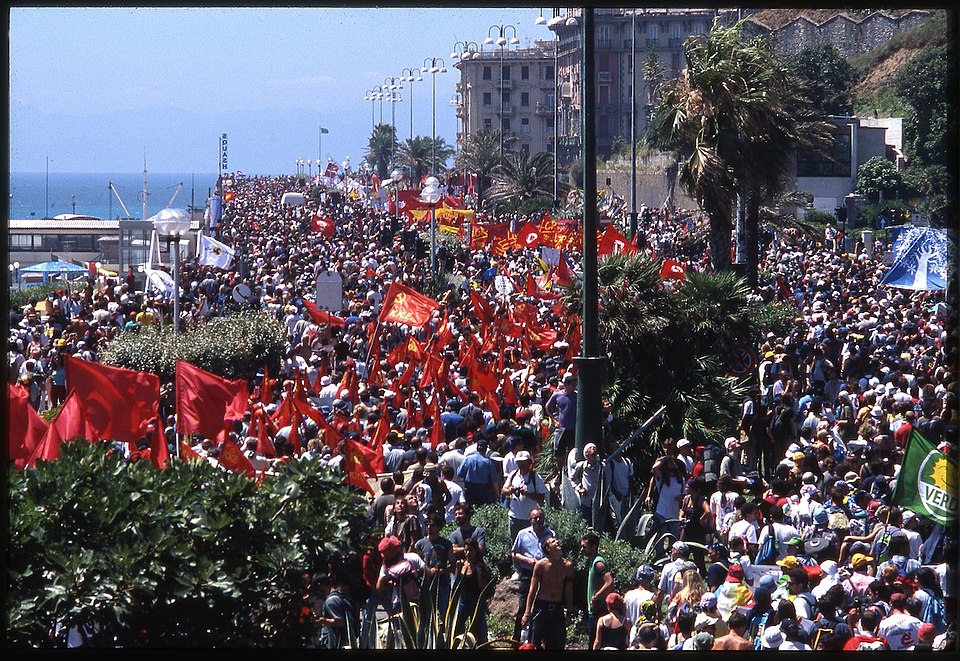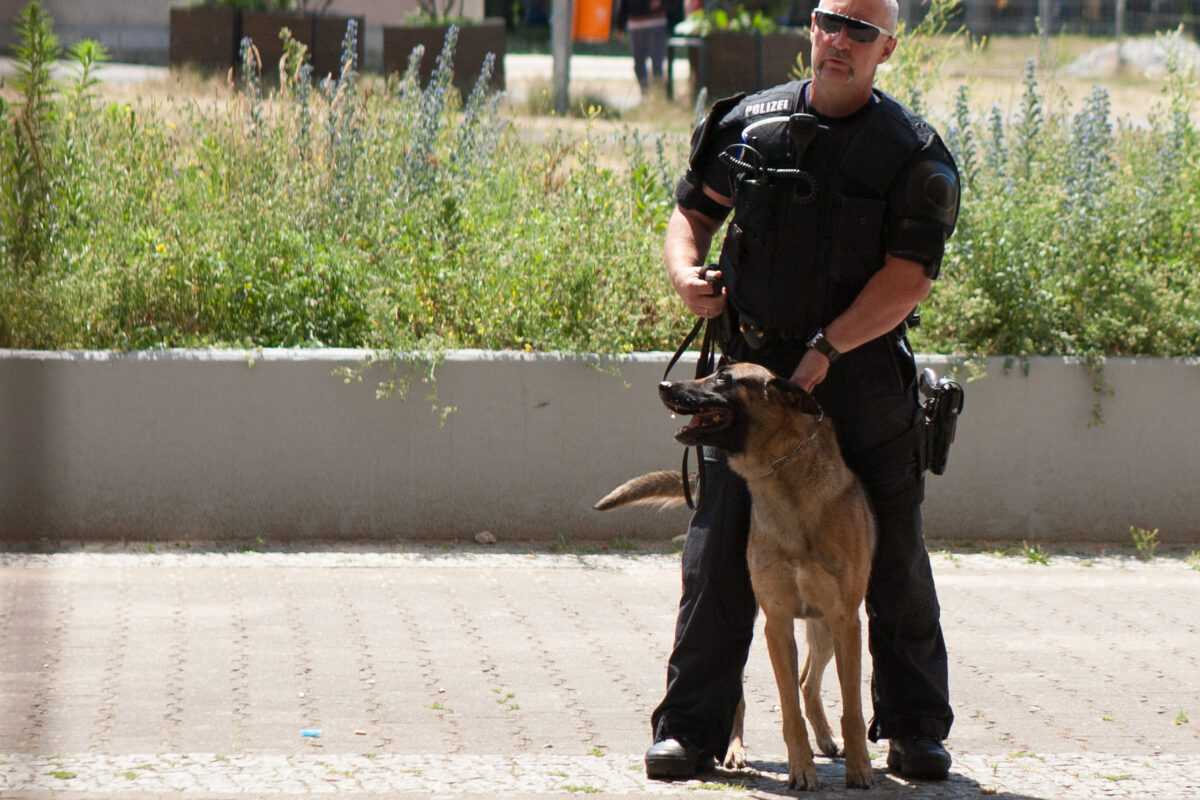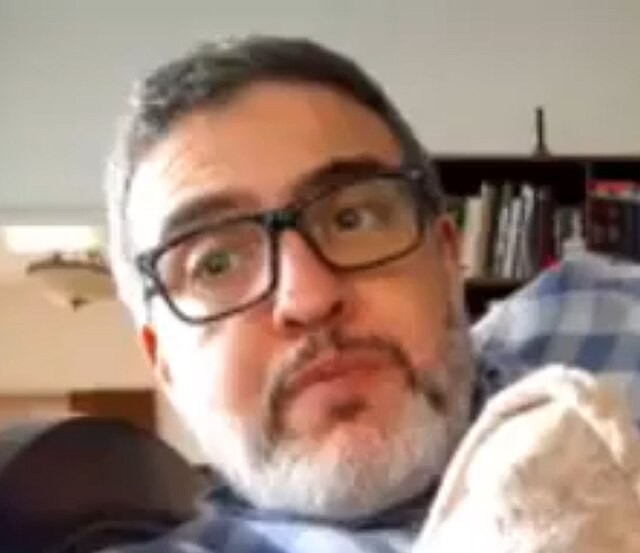Thinking of the “drug war”, certain images come to mind: darkened crime scenes, dead bodies on the floor with cardboards tagging victims as drug users, the police fending off a crime scene from grieving families and spectators in shock. One of the most known photographs of the ongoing drug war in the Philippines was taken by Raffy Lerma. In this image that was later called the Pieta, Jennilyn Olayres is seen holding her partner, Michael Siaron, who was shot to death by motorcycle-riding gunmen.
Raffy Lerma is a photojournalist who worked for the Philippine Daily Inquirer (PDI) for 12 years. Lerma resigned in 2017 to focus on documenting the “war on drugs” which began as soon as Rodrigo Duterte was elected to presidency. His insights on the drug war come not only from close and sustained documentation over the years but also from accompanying affected families and giving numerous talks about his experience internationally. We spoke to him about the exhumation of victims of the “war on drugs”, grieving, and community-based alternatives.
What did you observe as a photographer covering the “war on drugs” for 5 years?
The public mainly knows about Duterte’s punitive solution to the “drug war” with a focus on law enforcement. Leaving out possibilities of rehabilitation, the solutions don’t address the root causes of drug dependency. In response to the spate of killings, community-based rehabilitation programs have been established.
There are Filipinos supporting the “drug war,” but they actually would also like to learn about solutions other than the punitive route Duterte has taken. In many talks I have given, I met many Overseas Filipino Workers (OFWs) passionately defending the “drug war” yet they also ask: “So what is your solution? Can you give me a better solution?” When I mention alternatives they begin to think otherwise.
There are care-based alternatives to the problems of people with drug addictions. Solutions within institutional rehabilitation programs exist, but there are also better outcomes that could come out of human rights centered community rehabilitation. Education really plays a big role.
In the last five years, I learned to believe in community-based programs. There is the saying, “it takes a community to raise a child.” It also takes a community to reintegrate drug users into society and help them make it. Healing needs support from everyone.
What did you observe about the drug war during the COVID-19 pandemic?
It is always the poor left behind. During the lockdowns, it was the urban poor who would fall in line early in the morning to get ayuda (aid), putting themselves in danger of getting infected by gathering in groups. Some members of the society face this situation because of a lack of infrastructural assistance. COVID-19 hit the Philippines hard, but unequally among social classes. It is a double standard: when the rich gather for parties and are merely given warnings while the poor are treated more inhumanely. Some were beaten at the beginning of the lockdowns in 2020.
This disparity between rich and poor shows up again with the recent exhumations. It is mostly the poor who are killed in the drug war. As the poor cannot afford permanent graves, they are left with the option to lease a grave for five years. Their departed stay in these ‘apartment’-type graves until the leases expire. People have just gone back to work after the lockdowns, but the leases remain high for low-income families. Of course, the pain doesn’t end after the funeral, after the loved ones were killed and buried. They have been denied justice and the pain remains. Some have chosen to go on with their lives silently.
The high costs of leases and the exhumations have been a long-existing problem among the poor, even before the drug war. What are the current developments on this issue?
This problem about the poor not being able to afford a grave for their loved ones was brought to public attention because of the “drug war”. Just imagine, thousands have been killed. Recently, the issue of exhumations and cremations to support families going through this process have been highly publicized. Because of religious beliefs, some families don’t agree with cremations. It is up to them to decide whether they prefer cremations or burial.
Groups have come together to set up donation drives to address the needs of hundreds of families needing help. As long as there are funds, Fr. Flavie Villanueva, organizer of Paghilom, supports families affected by the “drug war”. The exhumation of “drug war” victims started in July 2021 and there is a long way to go. Paghilom is only in contact with a few families facing the eviction of their departed in apartment tombs. Many more are outside of these programs.
A dignified death is only for those who can afford it; it is not for the poor in public cemeteries. There is no dignity in the graves in which the poor are buried. Only the rich can afford to buy lots in private cemeteries. Some have mausoleums or a house for the dead, while the urban poor without housing make do with even living in public cemeteries. The poor are marginalized even in death.
We need stories that are about victims and families becoming actors of social transformation in their own communities
What other kinds of effort from the civil society have you seen emerging during these times?
Under the Duterte administration, we have seen the worst of inhumanity. People openly encouraged and supported “drug war” killings. Activists, media, and institutions confronting the government are ridiculed. But at the same time, many community-based programs emerged in partnership with the church, local government, and even the police. Church-initiated groups like Paghilom, SOW: Support for Orphans and Widows, or Rise Up for Life and for Rights substantially support families of victims of the “drug war”. Later on during the pandemic, community pantries formed. That’s where people are doing the most among themselves. In Tagalog: Hindi na kailangan umasa sa gobyerno. Hindi na tayo dapat umasa sa gobyerno (There is no need to rely on the government. We should no longer rely on the government) . This is the type of work that I hope more people would do.
What do you think could strengthen the public’s empathy to those victimized by the drug war?
When I started this documenting the “drug war,” the media focus was mostly on the killings and human rights abuses. I was exposed to so much death in these crime scenes. At that time, I thought it was necessary to show the reality of the daily violence happening in the streets. In time, people were becoming desensitized when this structural violence should never become normalized.
For you, what narratives about the drug war should we also focus on?
Stories should highlight resilience, how surviving families of EJK victims are coping and moving forward. We need stories on accountability, as some families and groups have been seeking justice despite the odds. They carry all their own stories beyond the violence. We need stories that are about victims and families becoming actors of social transformation in their own communities.
Many Filipinos stigmatize drug use. In government campaigns, those who use drugs are not portrayed as humans. That’s why it is important to humanize them. It is necessary to tell stories of people who use drugs, their journey to beat addiction with the help of community-based rehabilitation programs, and their return as productive members of society.
I hope more of these stories come out so people realize that “addiction” is a health problem. In most of the cases it is a lack of options and resources people have here. There are ways of solving the needs, but it cannot be this brutal method of government killings.
__
RESBAK (Respond and Break the Silence Against the Killings) is among the organizations at the forefront of raising awareness about the ongoing harm of extrajudicial killings in the Philippines. RESBAK is composed of artists, academics, and community members affected by the drug war. To support grieving families affected by the drug war, RESBAK and Program Paghilom opened a fundraising campaign for those looking to extend their pakikiramay. Your donations will at least grant victims of an unjust war a final resting place. Donors can send cash donations for the fund via Paypal, GoGetFunding, or GCash 09150172703. To receive updates on RESBAK’s projects, please subscribe to their social media page.
